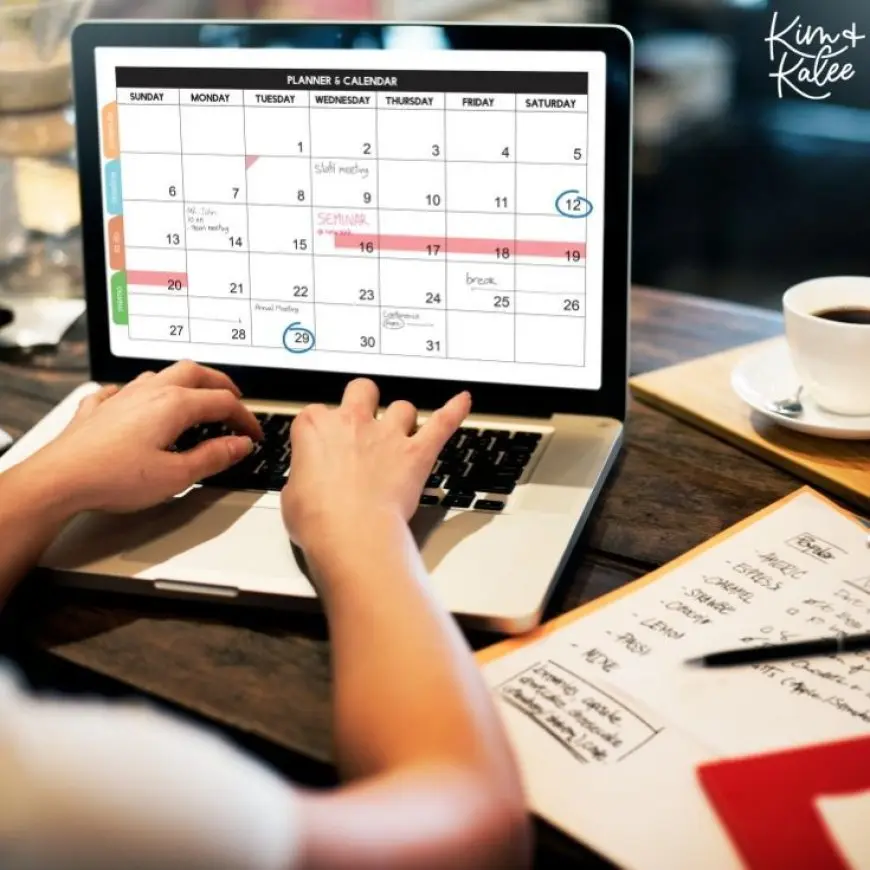How to Stop Procrastinating and Get Things Done
How to Stop Procrastinating and Get Things Done

Procrastination is a common challenge that affects many people at some point in their lives. Whether it's putting off a big project, avoiding daily tasks, or delaying important decisions, procrastination can create stress and prevent us from reaching our goals. Overcoming procrastination isn't easy, but with the right strategies, you can take control of your time, boost your productivity, and finally get things done. Here's how to break the cycle of procrastination.
Understand the Root Cause of Procrastination
Procrastination often stems from deeper emotional factors like fear of failure, perfectionism, or a lack of motivation. Understanding the root cause of your procrastination is the first step in overcoming it. Are you avoiding a task because it's overwhelming? Do you fear making mistakes? Or do you simply find the task boring? Once you identify why you're procrastinating, you can take targeted actions to address the underlying issue.
Break Tasks into Smaller, Manageable Steps
Large tasks can feel daunting, leading to procrastination. To make them more manageable, break them down into smaller, actionable steps. This will make the task seem less intimidating and give you a clear path forward. For example, instead of thinking "I need to write a 10-page report," break it down into smaller tasks like "outline the introduction," "research three main points," or "write one page." Completing these smaller steps will give you a sense of accomplishment and keep you moving forward.
Set Clear and Realistic Deadlines
Setting deadlines is crucial for combating procrastination. Without clear deadlines, it’s easy to keep pushing tasks off indefinitely. Set realistic and specific deadlines for each step of the project, and hold yourself accountable. Consider using a timer or a project management tool to track your progress and stay on track. The urgency of a deadline often provides the motivation needed to start and complete a task.
Eliminate Distractions
Distractions are one of the biggest causes of procrastination. Whether it's your phone, social media, or the television, distractions can easily derail your productivity. Identify the distractions that tend to pull your attention away from your tasks and take proactive steps to eliminate them. Put your phone on silent, close unnecessary tabs on your computer, or find a quiet space to work. The fewer distractions you have, the more likely you'll be to stay focused and get things done.
Use the “Two-Minute Rule”
The "two-minute rule" is a simple technique that can help you overcome the initial resistance to starting a task. The idea is that if a task will take two minutes or less to complete, do it right away. For tasks that take longer, commit to working on them for just two minutes. Often, the hardest part is starting, and once you've worked on a task for a few minutes, you'll find it easier to continue. This small commitment helps build momentum and reduces the tendency to procrastinate.
Find Your Peak Productivity Times
Everyone has times during the day when they feel most focused and energized. For some, this is in the morning, while others may be more productive in the afternoon or evening. Identify when you’re most alert and focused, and schedule your most important tasks during these times. Working when you're at your best will help you complete tasks more efficiently and with less mental strain, making it easier to stay on track.
Reward Yourself for Progress
Incentivizing progress is a powerful way to stay motivated and overcome procrastination. Set small rewards for yourself when you accomplish tasks or meet deadlines. For example, after completing a difficult task, you could treat yourself to a break, a snack, or something else you enjoy. Rewards provide positive reinforcement and make the process of getting things done feel more enjoyable.
Change Your Environment
Sometimes, a change of scenery can help break the cycle of procrastination. If you find yourself procrastinating in a particular space, try changing your environment. Go to a coffee shop, library, or park to work, or simply rearrange your workspace. A new setting can boost your focus and help you approach tasks with a fresh perspective.
Practice Self-Compassion
Procrastination often leads to feelings of guilt and self-criticism, which can create a vicious cycle. Be kind to yourself when you fall behind or struggle to get things done. Remember that everyone experiences procrastination at times, and it's a normal part of life. Practicing self-compassion can reduce the negative emotions associated with procrastination, making it easier to move forward.
Seek Support and Accountability
If you’re finding it difficult to overcome procrastination on your own, consider seeking support from others. Share your goals with a friend, colleague, or family member, and ask them to hold you accountable. Having someone to check in with can increase your motivation and keep you on track. You might also consider working in a group or joining a study or productivity group for additional support.
Overcoming procrastination requires self-awareness, discipline, and the use of practical strategies. By understanding the reasons behind your procrastination, breaking tasks into smaller steps, setting deadlines, and eliminating distractions, you can boost your productivity and get things done. Remember to be patient with yourself and stay committed to making progress, even if it’s in small steps. With persistence, you can develop a habit of getting things done and enjoy the satisfaction of accomplishing your goals.







